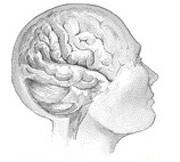Study finds association, but overall risk is low — only about 1 percent
THURSDAY, May 21, 2015 (HealthDay News) — Patients with a history of depression seem to have a higher risk of developing Parkinson’s disease, according to new research published online May 20 in Neurology.
Peter Nordström, Ph.D., professor and chief physician in the department of Community Medicine and Rehabilitation at Umeå University in Sweden, and colleagues analyzed data for more than half a million Swedish people who were 50 or older. Of these, 140,688 had a history of depression, while 421,718 similar participants had not been diagnosed with depression. The researchers followed the participants for as long as 26 years. The average follow-up time was seven years.
The researchers found that 1.1 percent of those with depression eventually developed Parkinson’s. Just 0.4 percent of those without a history of depression later developed Parkinson’s. Participants hospitalized five or more times were 40 percent more likely to be diagnosed with Parkinson’s than those hospitalized for depression only once. Additionally, people hospitalized for depression were 3.5 times more likely to develop Parkinson’s than those treated for depression in an outpatient setting.
“There’s substantial evidence of an association with depression in the last years before a diagnosis of Parkinson’s disease,” Nordström told HealthDay.
Copyright © 2015 HealthDay. All rights reserved.








